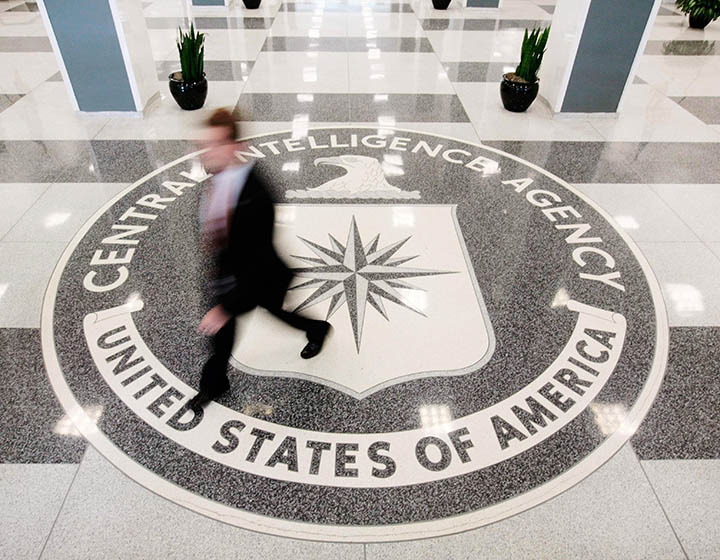
The Senate Select Committee on Intelligence, chaired by Sen. Dianne Feinstein, D-Calif., released a graphically detailed report last week that questioned the Central Intelligence Agency's use of certain methods and techniques that some have described as torture. Like the rest of the American population, Christians have weighed in on the issue of torture itself along with the CIA's methods.
Brian Zahand, the founder and lead Christian pastor of Word of Life Church in St. Joseph, Mo., argued in a Dec. 10 blog post that one cannot be a Christian and support torture at the same time. For him, the stand Christians should take in regards to torture should be quite clear and uncompromising.
"The support of torture is off the table for a Christian," Zahand wrote. "I suppose you can be some version of a 'patriot' and support the use of torture, but you cannot be any version of Christian and support torture. So choose one: A torture-endorsing patriot or a Jesus-following Christian. But don't lie to yourself that you can be both. You cannot."
Zahand added that one does not necessarily have "to be a Christian to reject the barbarism of torture," because any "humane person" can make that same argument. However, he contended that anyone calling themselves Christians should be required "to reject the use of torture."
D.C. McAllister of The Federalist took issue with Zahand's declaration, citing a 2009 Pew survey that 79 percent of evangelicals in America and 78 percent of Catholics indicated that torture can be justified. Before she countered Zahand's points, McAllister described her definition of torture.
"Torture is the infliction of severe pain on a defenseless person for the purpose of breaking his or her will," McAllister wrote. "Authoritarian regimes want to break people's wills to gain or maintain power. Their motives are not to gain important information to save lives, and the torture they conduct is typically prolonged, lasting days, weeks, and even years."
McAllister admitted that although it has been imposed on soldiers and "innocent citizens," the maximalist form of torture she described had "no place in civilized societies."
"This is the kind of torture that can be worse than death," she wrote.
However, McAllister made a distinction between "prolonged torture" and "interrogative torture." Although there have been debates regarding the CIA's use of enhanced interrogation techniques as torture, she noted that their purpose was to "save lives" and "not to exercise power over the powerless."
"Interrogative torture is minimal, acute, and designed to gain necessary information to protect society," McAllister wrote. "It is sometimes morally justified to use pain to break a terrorist's will in order to save lives. Interrogative torture is not prolonged, maximal, pleasurable, vengeful, or punitive, and it does not have long-term debilitating consequences that completely disrupt a person's ability to function normally."
McAllister added that interrogative torture was a "lesser evil" than death, arguing that a dead person has "no autonomy, no hope of life, and no dignity." When a person is tortured in a minimal way, she contended that person has not completely lost all autonomy.
"They can still give up information and end the interrogation, or they can remain silent and suffer," McAllister wrote. "There will come a time when the pain will end, when they will regain their autonomy, and they will continue their lives."
Zahand thought that the pragmatic national security argument in justifying torture was a horrible one for evangelical Christians. He argued that "Christians are called by Jesus to imitate a God who is kind as merciful to the wicked," citing Luke 6:35-36 to support his position.
"Evangelical support of torture is what we might call an 'eruption of the real,'" Zahand wrote. "It's a horrifying moment of unintended truth-telling where we discover that allegiance to national self-interest trumps allegiance to Jesus Christ."
Zahand added that Jesus was a victim of torture thanks to the Roman governor Pilate.
"The Roman Empire could not tolerate a Galilean preacher claiming to be the King of the Jews," Zahand wrote. "Rome called it insurrection and the penalty was crucifixion. So Jesus was tortured to death. But when God raised him on the third day, Jesus and his message of enemy-love and radical forgiveness were vindicated."
As a result, Zahand concluded that torture "does not lead to freedom and security," arguing that its use is "demonic and "leads to hell."
McAllister thought that people like Zahand have made a mistake in their analysis on the use of torture. She argued that government rightly uses force, which can include torture, to protect society.
"Christians are no longer under the Mosaic Law, but this does not mean there are no longer temporal punishments delivered by the government-a government that God means will use force to protect society, not to be a charitable institution," McAllister wrote. "The Bible makes it clear that those who live by the sword will die by the sword. If you kill, you forfeit your right to life."
McAllister added that "it is the state's duty to punish criminals." However, Zahand warned that the rival to the Kingdom of God was empires, and their main obsession was achieving security at all costs.
"Empires always justify their violence in the name of security," Zahand wrote. "Christians on the other hand make no claim to security. We are not safe. We have willingly embarked upon the risk of following Jesus, knowing full well that such a venture may lead to suffering and death."
Zahand added that having a risk-free version of Christianity nowadays in "the security state of America" has come with a price.
"The price was that no one quite knew anymore what it meant to be a Christian," Zahand wrote. "How can you be a Christian when there is no risk? How can you take up your cross and follow Jesus if there's no danger of suffering? Removing all risk makes Christianity incomprehensible."
















